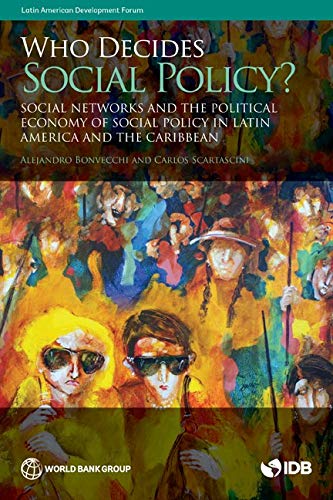

Most ebook files are in PDF format, so you can easily read them using various software such as Foxit Reader or directly on the Google Chrome browser.
Some ebook files are released by publishers in other formats such as .awz, .mobi, .epub, .fb2, etc. You may need to install specific software to read these formats on mobile/PC, such as Calibre.
Please read the tutorial at this link: https://ebookbell.com/faq
We offer FREE conversion to the popular formats you request; however, this may take some time. Therefore, right after payment, please email us, and we will try to provide the service as quickly as possible.
For some exceptional file formats or broken links (if any), please refrain from opening any disputes. Instead, email us first, and we will try to assist within a maximum of 6 hours.
EbookBell Team

4.4
92 reviewsCountries in Latin America and the Caribbean have made remarkable progress in improving the living conditions of their people since the 1990s. Poverty has declined by almost 50 percent, and average life expectancy has increased substantially, especially for children under the age of five. Most children now attend primary school, and three out of four start secondary education. These advances can be largely accounted for by two factors: the fast-paced economic growth of the early 2000s and the substantial expenditures for social programs in the region.
However, the region's economic slowdown has halted the pace of improvement, and social policies have not been implemented consistently or effectively because of flaws in design and execution. These failings raise important questions. Who formulates social policy? What resources do actors bring to decision-making processes, and how do those resources position them within decision-making networks? These are not academic questions. The budget and economic constraints imposed by the COVID-19 pandemic mean that public policies will have to be more efficient and effective while dealing with limited resources.
Few analyses to date have focused on the process of formulating social policy, the social networks involved, the details of coordination among actors and organizations, and the institutional, normative, and operational factors that make policies likely to succeed—or fail. There has not been a comprehensive, systematic study of how social policy-making processes and coordination mechanisms—formal or informal— can make a difference in the operational effectiveness and impact of social policies.
Who Decides Social Policy? Social Networks and the Political Economy of Social Policy in Latin America and the Caribbean attempts to fill this void. This book combines an institutional political economy approach to policy making with social network analysis of social policy formulation processes. Based on extensive interviews with governmental and nongovernmental actors, the case studies of social policy formulation in Argentina, The Bahamas, Bolivia, and Trinidad and Tobago show that while societal actors are central in the networks in South American countries, government officials are the main participants in the Caribbean countries. The comparative analysis of the networks of ideas, information, economic resources, and political power across these cases indicates that differences in the types of bureaucratic systems and governance structures may explain the diversity of actors with decision power and the resources used to influence social policy formulation across the region. These analytical and methodological contributions— combined with specific examples of policies and programs—will help to enhance the efficiency, efficacy, and sustainability of public policies in the social arena.